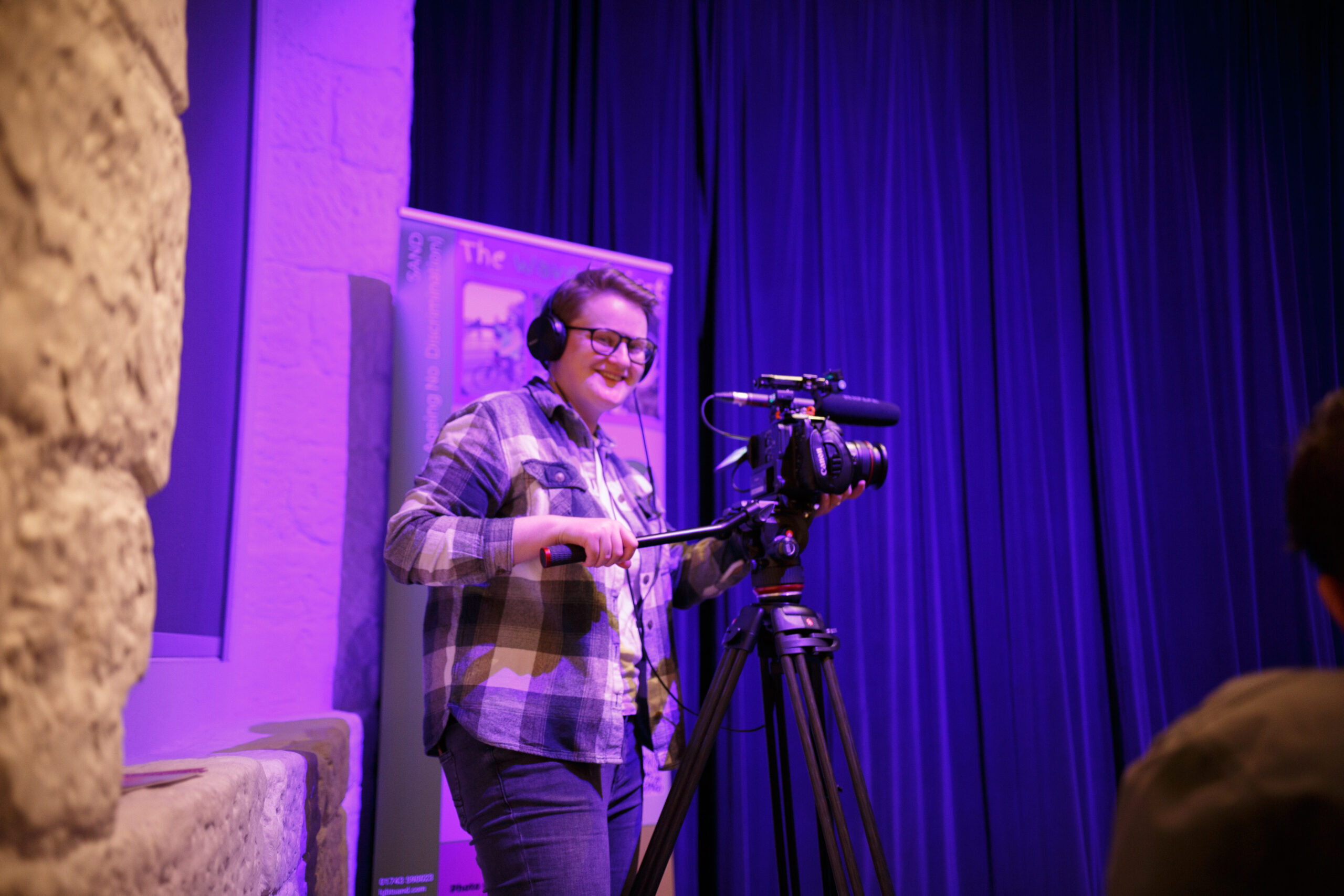Project Description
LGBT organisation uses three day festival to generate content for future awareness campaigns
One of the things I try and get across when working with a client on their event video, is that it doesn’t just have to be a generic highlights montage of the event itself.
For example, one of the things you can do is gather things like video case studies. Think about it, a lot of your happiest clients/customers will be at an event you’re running, so it’s a great opportunity to interview them.
That was the concept we used for the 2023 Shrewsbury LGBT+ History Festival video.
What was the planning process like
I’ve worked with SAND, who run the festival, for a number of years now.
Organising the event is just a small part of what they do. For the rest of the year, they’re trying to improve the lives of older LGBT+ people through engagement with local healthcare providers in Shropshire.
When speaking to them about what they were looking for from the festival video, I also asked what projects they’re working on generally at the moment; and what messages are they pushing in their training sessions.
One of the big ones was the importance of increasing visibility of LGBT+ people, and especially older LGBT+ people.
Knowing that the festival was a time when the local queer community really comes together, I suggested using the event video as an opportunity to gather people’s thoughts on visibility, so this video could be used in training sessions and awareness campaigns in the future.
What was the filming process like
The festival took place at three different locations in Shrewsbury: The Hive, Palmers Cafe, and the Old Market Hall cinema.
So it involved quite a bit of carting filming equipment around the town centre!
At each event, I was focussed on two things: capturing the essence of what was going on, and grabbing attendees before and after for vox pop style interviews about LGBT+ visibility.
I worked at the BBC for over five years as a reporter and a producer, so I was in my element doing these on the spot, quick interviews. They’re very much done as a conversation, so the interviewee doesn’t feel pressured about having all the answers, and is able to come across really naturally without worrying about ‘oh my god, there’s a camera there’.
After the wrap on Sunday afternoon, there was definitely a pint of cider and a pub dinner with my name on it… what a weekend!
What was the editing process like
At VideoHQ, we specialise in videos where the interviews form the narrative of the video, allowing you and your supporters to tell the story of your event.
So first of all, I put all of the interviews in my editing software and picked out the best bits from each one.
After that, I stitched them all together into a cohesive and engaging narrative, which makes up the spine of the video.
But it’s a bit visually boring just watching people talking (sorry!) so I then interspersed the video with footage from the events over the weekend.
After a colour grade to make the footage look cohesive, and picking a banging music track, the video was complete.
Really, the trickiest bit of the project was editing and subtitling the final interview – my first ever foreign language interview! And I remembered a lot of things from school, but GCSE French was not one of them. But I definitely wanted to include this interview, because she’d travelled all the way from France – and it’s great to show the international appeal of the festival!
Looking for fab coverage of an event you’ve got up? Get in touch to talk through how this could work.

